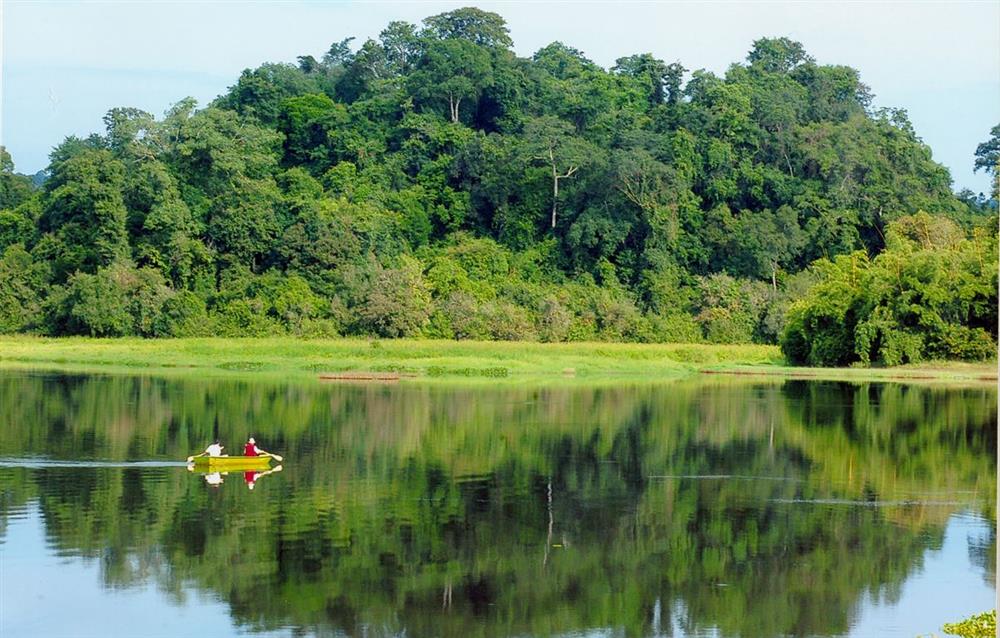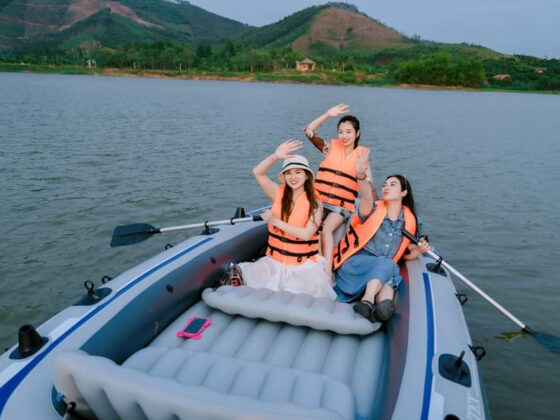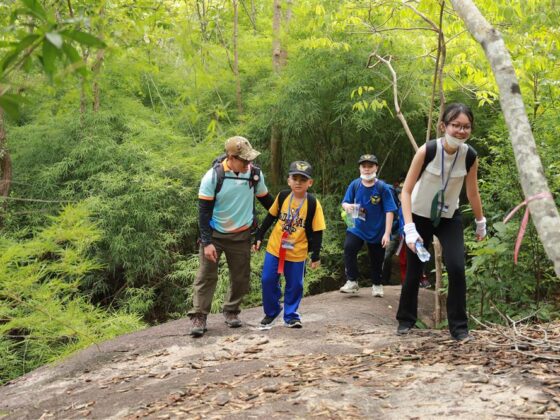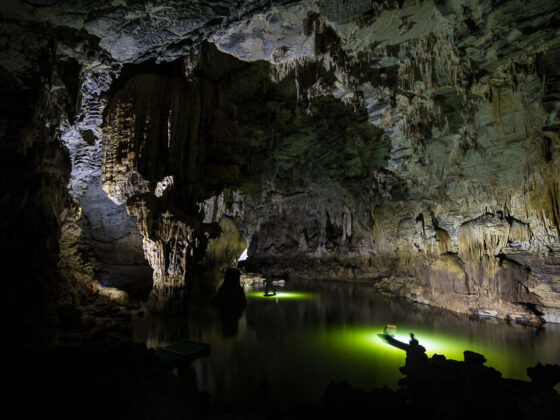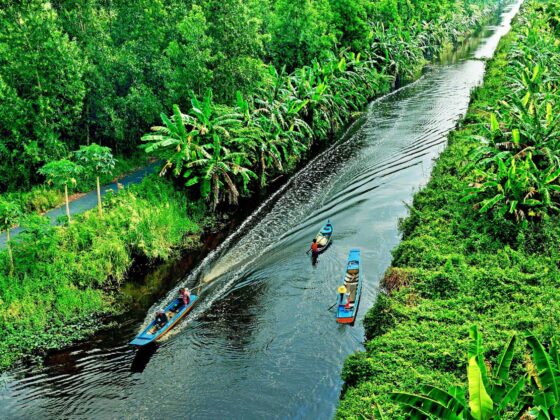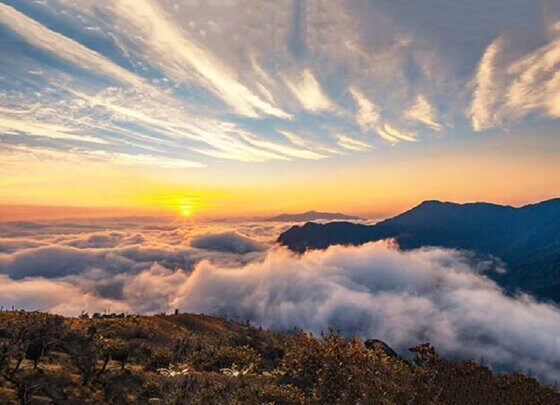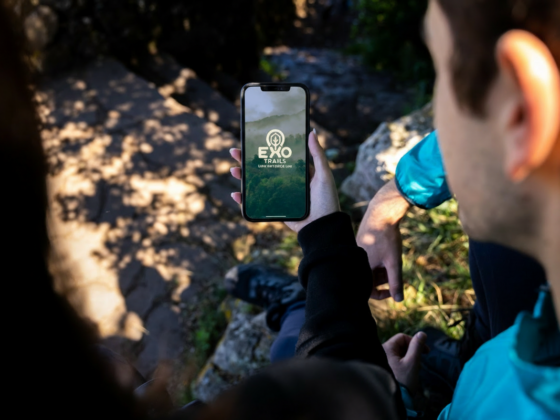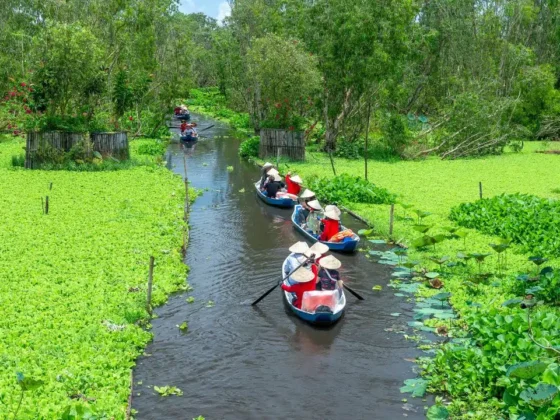Table of Contents Show
✍️ AI is summarizing:
The psychology of nature reveals a profound truth: the wild acts as a mirror, reflecting our inner landscape back to us. Some days, a familiar trail feels exhilarating and open, while on others, it might feel heavy and challenging, even though the path itself hasn’t changed. This isn’t just about the weather; it’s about what we carry within.
We seek the outdoors not to escape, but to return to ourselves, to listen, and to see our emotions and thoughts more clearly through the language of leaves, stone, and sky. Discover how engaging with nature offers a unique form of self-reflection and healing, helping us understand our inner world with surprising clarity and grace.
Read more interesting posts here:
- The Ultimate Toolkit: How to Plan a Group Hiking Challenge in 5 Easy Steps
- Urban Oases: A Guide to the Best Parks in Ho Chi Minh City
- More Than a Walk: Exploring the Powerful Mental Benefits of Trekking
Understanding the psychology of nature as a mirror for our inner selves
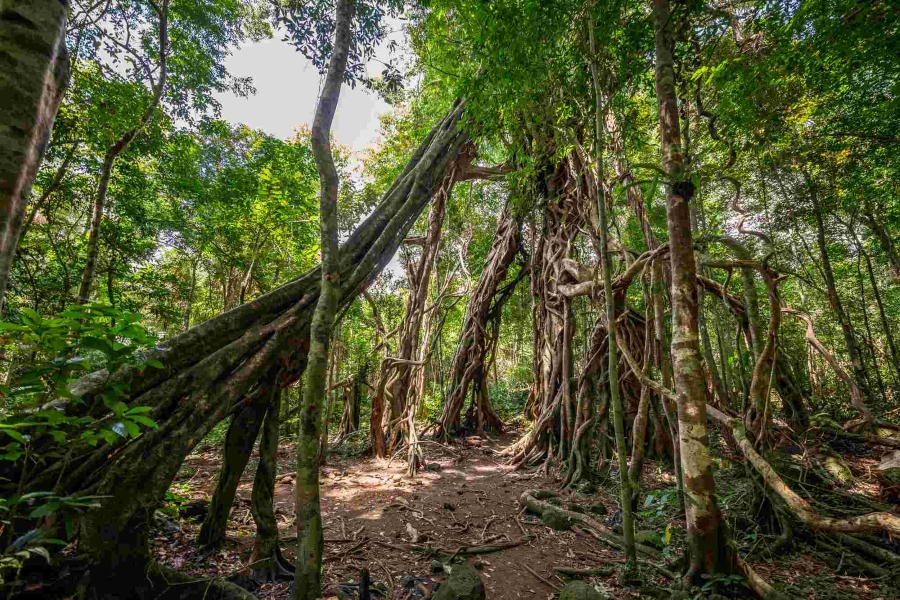
Some days, I step onto the trail and the world feels wide open—like anything is possible. The sky stretches forever, the breeze hums with lightness, and even the uphill climbs feel welcome. Other days, the same path feels heavy. The trees lean inward. The wind presses against me. Every step echoes whatever I carried in. Same trail. Same forest. But the feeling? Completely different.
That’s when I remember: nature doesn’t just surround us, it reflects us. We often go outside to get away from things – stress, screens, the hum of daily life. But the deeper truth, the core of the psychology of nature, is that we don’t go into nature to escape. We go to return. To listen. To see ourselves more clearly, through the language of leaves, stone, and sky.
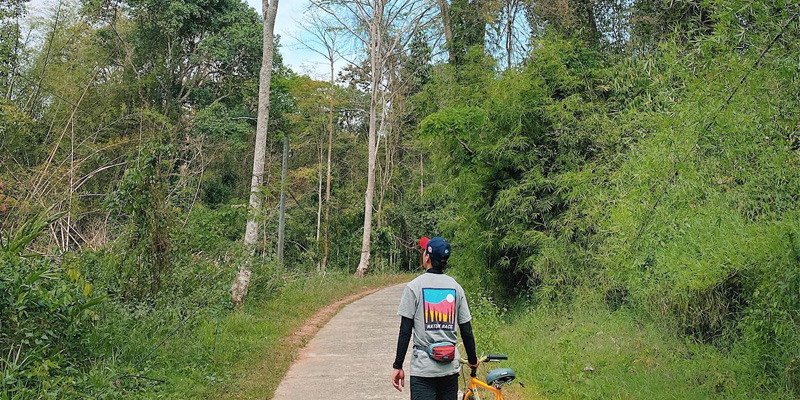
Outdoors, there are no mirrors in the traditional sense, but there are reflections everywhere. The way a still lake mirrors your restlessness. The way a wind-rattled forest reflects the noise in your mind. The way a quiet, mossy trail reminds you how much you’ve been craving peace without even realizing it.
How the psychology of nature helps us process our emotions
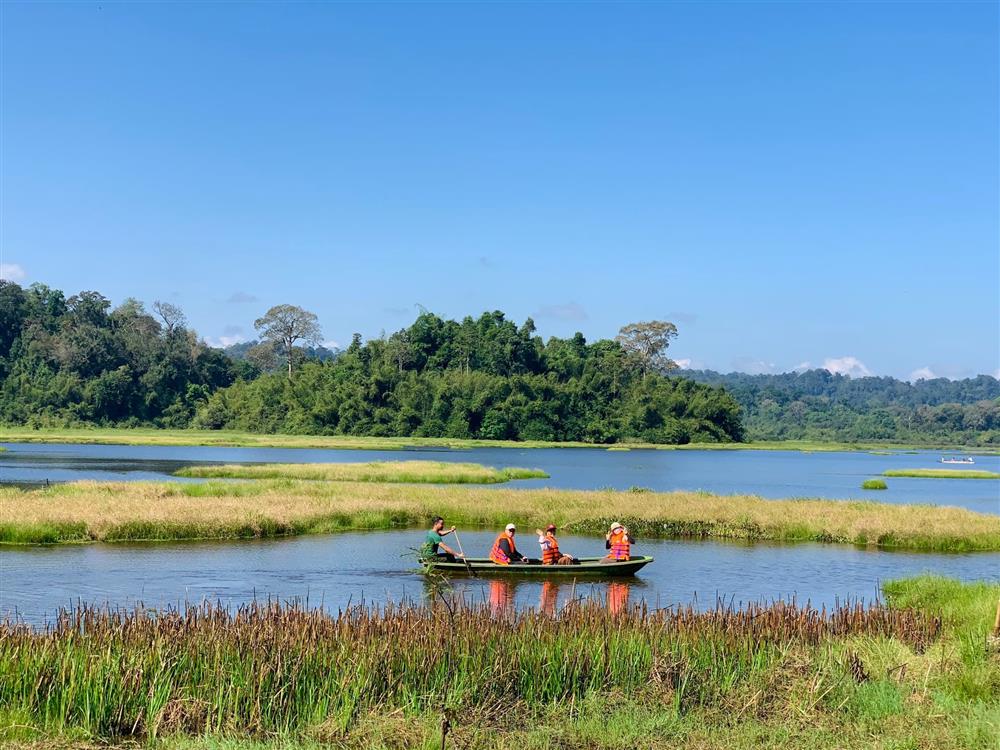
I’ve had days when I stood by the ocean, its tides crashing hard, and felt my own emotions come up like waves – grief, anger, longing. This aspect of the psychology of nature is profound: it’s not that the ocean caused these feelings, but rather that it held space for them. There was no judgment, no quick fix, just presence. On those days, I didn’t need advice; I needed salt air, movement, and the reminder that even chaos has rhythm.
Likewise, I’ve found joy mirrored in the smallest things, a testament to the subtle impact of nature on our well-being: a bird hopping along a fence, a wildflower blooming from rock, a sunset so soft it makes you want to whisper. Nature shows us the full range of what it means to be alive. And more importantly, it gives us permission to feel all of it.
Applying the psychology of nature to find what you truly seek outdoors
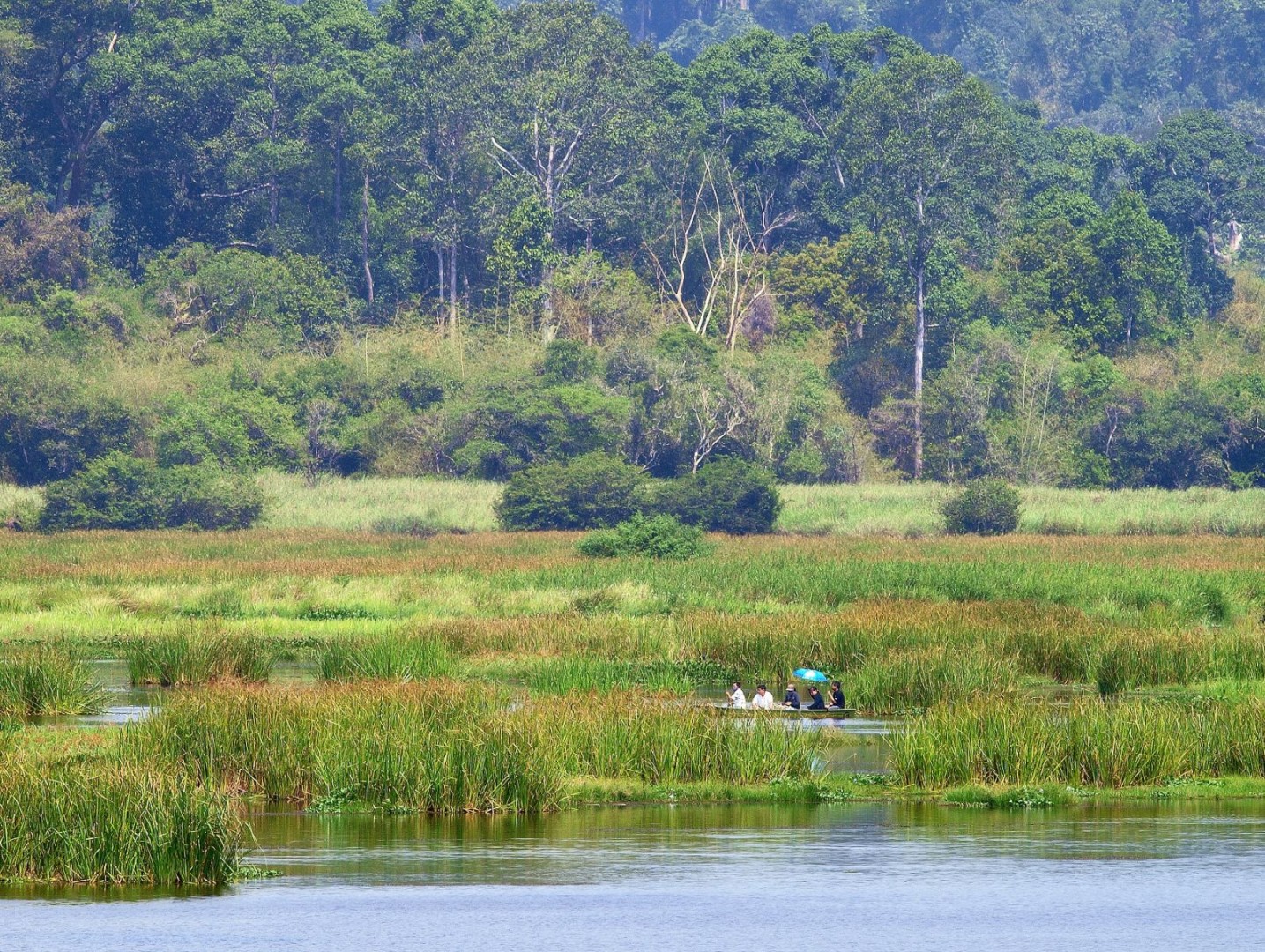
As someone who’s spent years guiding people through outdoor spaces from wide-eyed beginners to seasoned thru-hikers; I’ve learned this fundamental lesson in the psychology of nature: most people don’t go outside for the view. They go for the feeling. The trail, the forest, the desert – they reflect what’s happening inside us, often more honestly than we’re ready to admit.
And that’s a gift. Because in a world that pushes productivity and performance, nature reminds us to simply be. It doesn’t ask you to fix yourself. It doesn’t measure your pace. It meets you where you are, with grace, with mystery, and sometimes, with silence.
Using the psychology of nature for a deeper outdoor experience
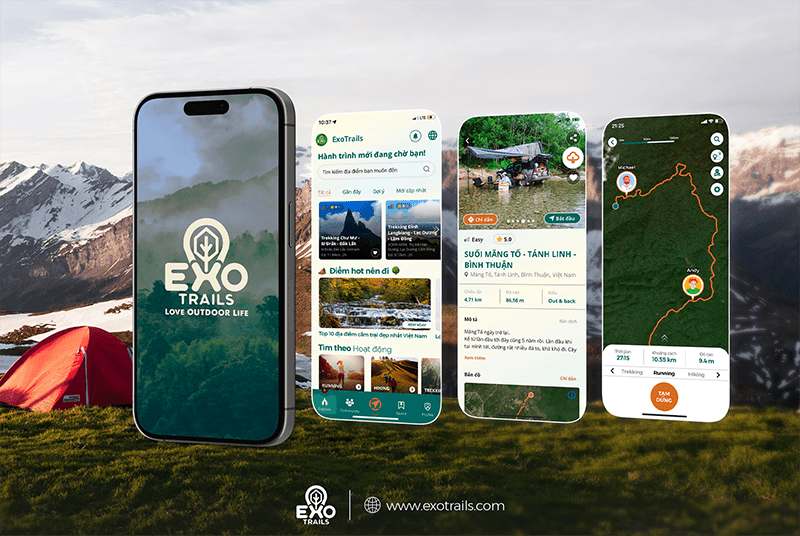
That’s why I always encourage people especially those new to the outdoors to slow down and tune in. Don’t just hike to check off miles. Sit. Notice. Ask yourself: What is this landscape reflecting back to me today?
Tools like the ExoTrails app can guide us to beautiful places, but the deeper journey, the one rooted in the psychology of nature, happens once you arrive. Use it to discover a quiet spot you’ve never been. Not for the photos, but for the inner weather report. For the kind of insight that doesn’t come through scrolling or small talk but through stillness.
Because nature doesn’t always offer answers but it always offers perspective. And sometimes, that’s exactly what we need.
So the next time you step outside whether it’s a coastal path, a mountain ridge, or a park bench, bring your full self. Bring your questions, your joy, your sadness, your wonder. Let the earth hold them. Let the wild mirror them. And watch what comes into focus not just in the distance, but in you.
Conclusion
The greatest landscapes we discover are not on a map, but within ourselves. This is the heart of the psychology of nature—the profound realization that the outer world is a gateway to our inner one. By paying attention to how the wild makes us feel, we are given a powerful tool for self-awareness, healing, and growth. The forest, the ocean, and the mountains don’t just offer a scenic backdrop; they offer a reflection of who we are at our core.
Want to share your reflections from the trail? Join our community of explorers in the ExoTrails Facebook Group and follow the ExoTrails Fanpage for daily inspiration and trail tips!
FAQs
Why does nature feel so healing?
Nature provides a non-judgmental space that reduces stress and allows us to process emotions freely, connecting us to a sense of calm and perspective.
What can nature teach us about ourselves?
Nature acts as a mirror, reflecting our inner state and revealing our true feelings, resilience, and deep-seated need for peace or joy.
How does being outdoors affect your mood?
It can significantly boost mood by reducing cortisol levels, increasing feelings of awe and wonder, and providing a physical outlet for stress and anxiety.
What is the connection between nature and mental health?
Spending time in nature is strongly linked to reduced symptoms of anxiety and depression, improved focus, and an overall greater sense of well-being.
How do you practice mindfulness on a hike?
Focus on your senses—the feeling of your feet on the ground, the sound of the wind, the scent of the trees—and notice your inner state without judgment.

